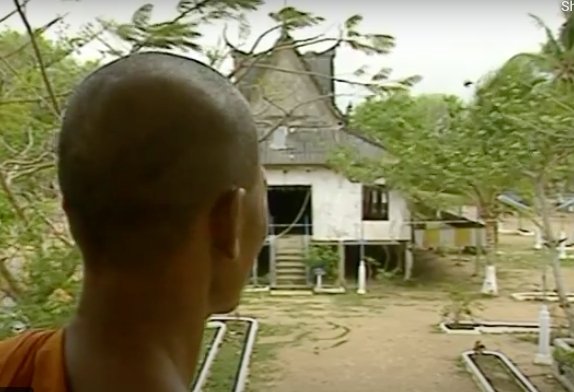
In 2001 Wat Ou Poat was selected to be the Pagoda where we would build an HIV and AIDS clinic. It wasn’t my first, second, or even third choice of locations at the time, because The Khmer Rouge had destroyed much of it and some of the stupas, supposedly had even been used as holding cells for prisoners who would eventually be executed.
There was a temple on the grounds but it was dirty and seldom used. The meeting place for the village was an old white structure built on decaying wooden posts and every time I attended a meeting in it, it would wobble from side to side. The young Monk, who slept on the floor of the temple, would laugh at my cautiousness whenever I entered the meeting hall, but for me it was a real concern, because I didn’t want to be accused of being a ‘Samson’ should the walls come tumbling down.
Lots of things have changed over the years—the young monk became one of my good friends and a co-worker in the hospice for several years. Eventually, he took over as Abbot of the Wat.
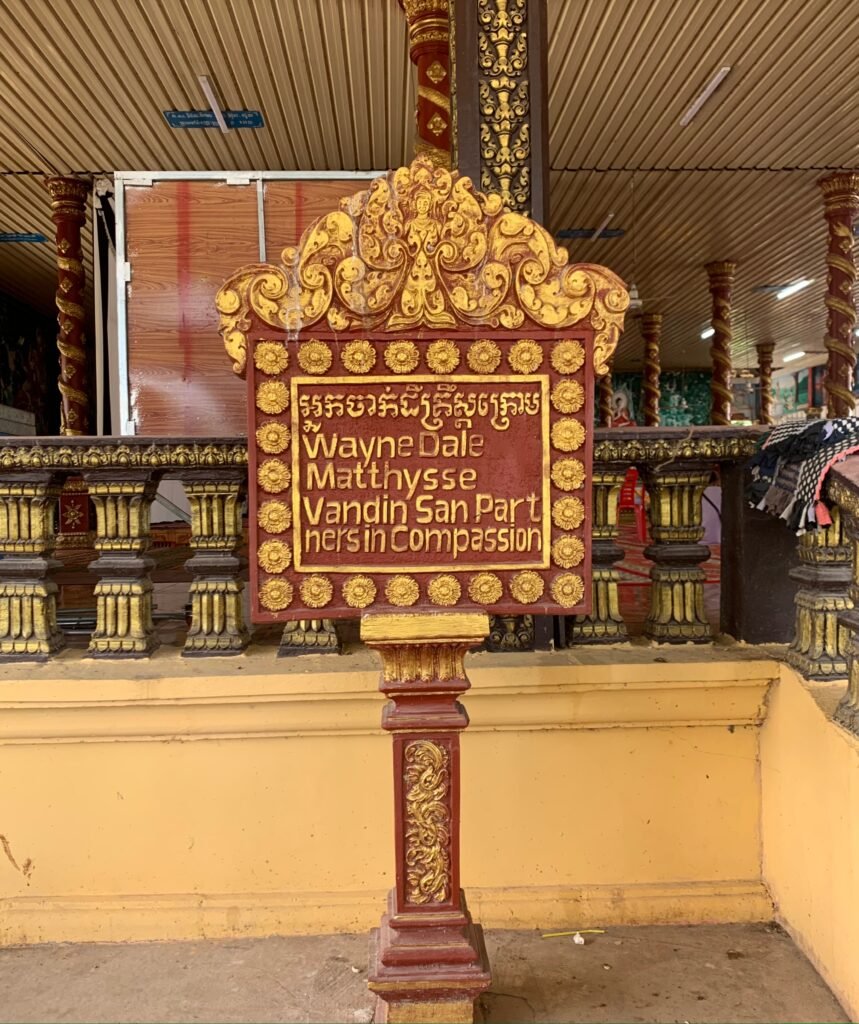
These memories came back to me today when I came across this plaque during my walk around the replacement meeting hall, built some years ago. I told them, when they first started construction on the hall, that I would pay for the fill dirt if they put in a solid cement floor, so that I could attend meetings without being concerned about the building collapsing. They laughed, but took me up on my offer.
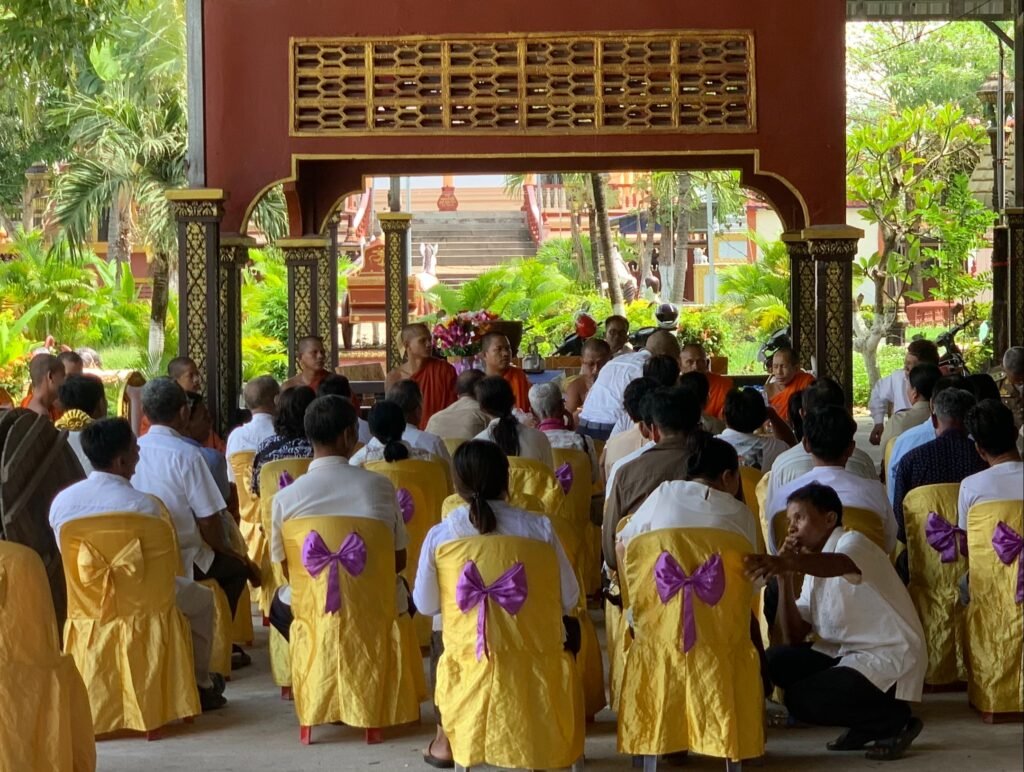
So much has changed since those long-ago days. So many memories made and stored away in an envelope marked ‘Do not open, until that time, when memories are all that remain.’
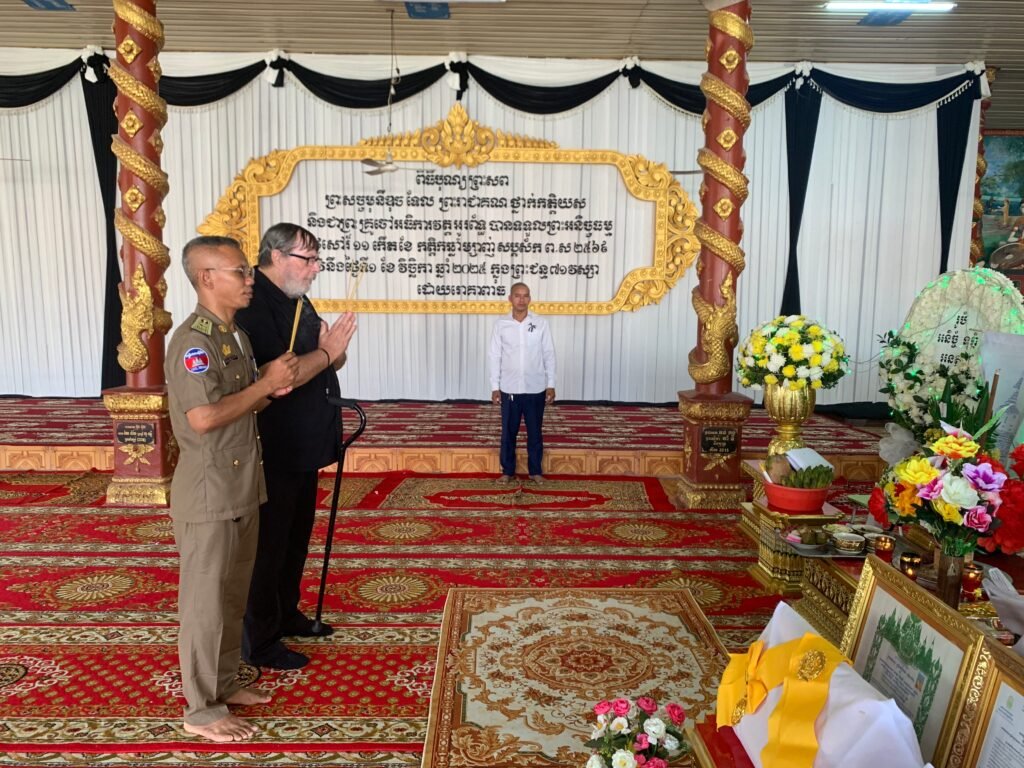
The floor is solid beneath my feet and easily supports the added weight I have accumulated over the years. It was after all a good investment.
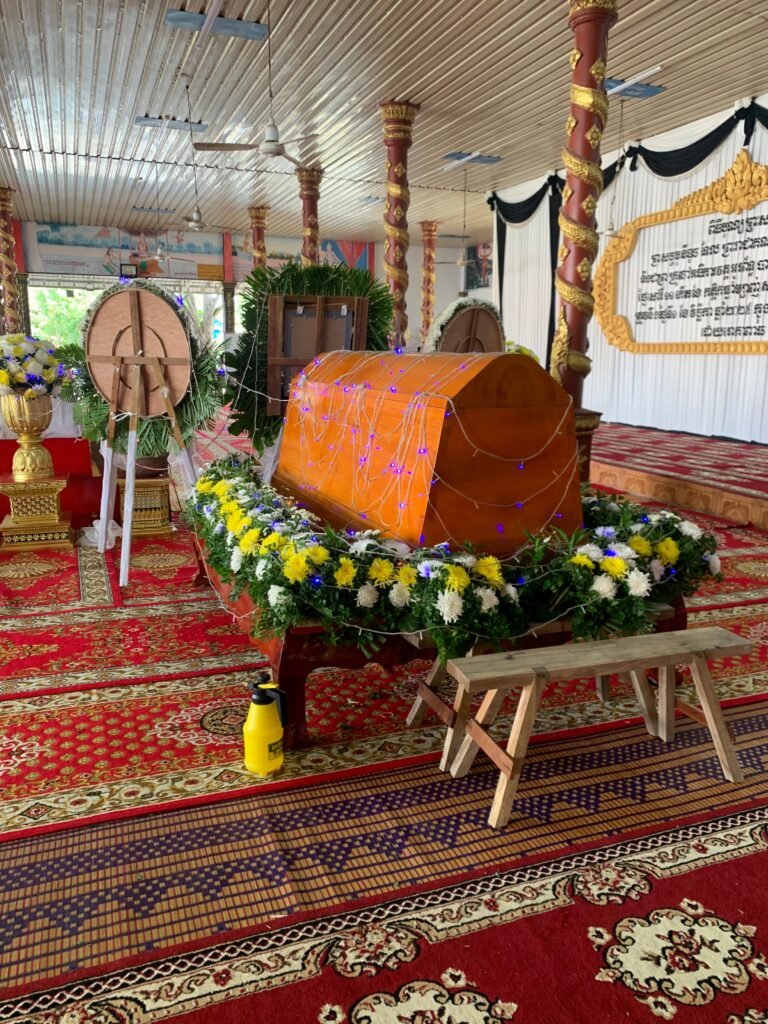
And the empty coffin you stored just outside your room now serves its purpose. I didn’t understand before… but I do now, and I am grateful for all you have taught me.
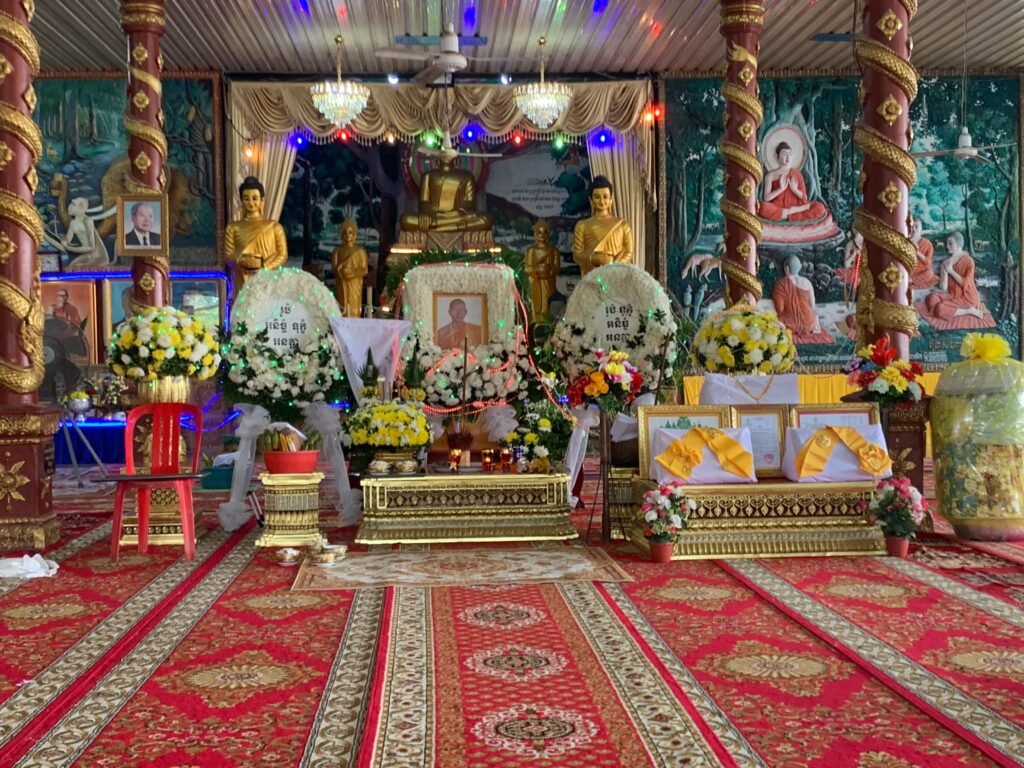
Preah Sachmoni Duch Tel, the Honorary Venerable,
The Father of the Sangha of Wat Ou Poat Pagoda,
Received the Dhamma at 3:50 pm on November 1, 2025.
COFFIN EXPLANATION
One of the core teachings of Buddhism is the impermanence of all things. Selecting their own casket is a reminder to the monk—and to the community—that life is temporary. By choosing the casket, the monk is acknowledging their own eventual death and preparing for it in a spiritually conscious manner. It serves as a meditation on mortality and the transient nature of existence.


